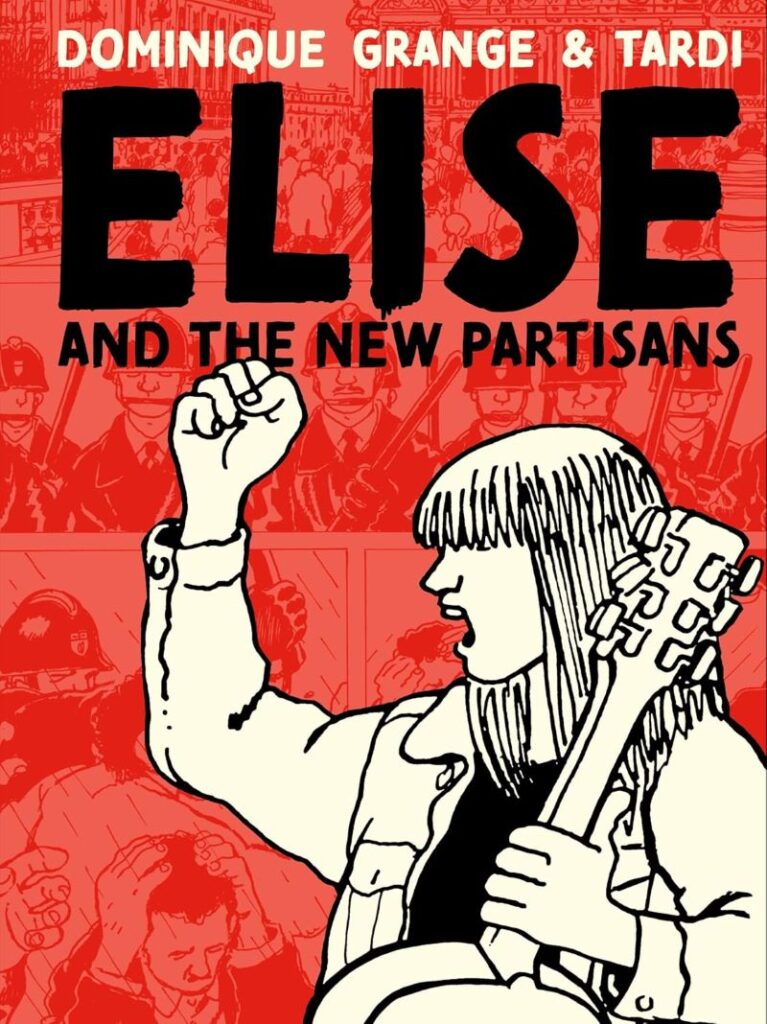
Shortly after a young pop singer arrives in 1950s Paris to find fame, she becomes aware of the political crisis in French-colonized Algeria. Noticing the abhorrent treatment of Algerian immigrants in Paris, she becomes involved in their plight, triggering her steadfast devotion to social causes for the next two decades. The story of the fictional character of Elise is a thinly veiled autobiography by Dominique Grange, brought to vivid life by the masterful lines of Jacques Tardi.
Buy Elise and the New Partisans bookGrange’s tale tracks Elise’s involvement in various progressive causes, joining the front lines of protests against labor exploitation, racism, fascism, and any other pressing issues that come to her attention. She’s a protestor in search of a protest, seemingly always on the move to whatever cause strikes her fancy without ever having any direct relationship to the cause. This lack of personal skin in the game makes her story somewhat annoying, as the cliché protest singer continually inserts herself into situations that didn’t ask for her involvement. While it’s admirable that she wants to help, her fanatical two-decade focus on front-line activism ultimately amounts to little more than vignettes for this book.
And that’s really the substance of the plot: one protest after another, year after year, strung together from her first-hand perspective of each individual event without any real macro view of what she or her organizations hope to accomplish over the long term. She talks about harsh police response and treatment of protestors, particularly in regards to her one trip through the justice system. She recounts a scheme to insert agents into companies as regular employees solely to stir up labor unrest, before admitting that many of those agents ultimately ended up staying employed and retired from those companies. She also bemoans the way the movements died out in the ‘70s, romanticizing the glory days of the late-‘60s youth movements like any other faded hippie.
The book’s saving grace and principal reason for U.S. release is the artwork by veteran French cartoonist Tardi. After roughly annual releases of his U.S. editions through Fantagraphics over the last 15 years, he’s established a devoted following that will absolutely savor his linework here. He’s tasked with driving home the chaos and crowds at some particularly hectic events, and he responds with expertly composed, visceral scenes that convey the confusion as both police and activists attempt to navigate the madness. His characters retain the slightly rounded, cartoonish proportions he’s favored in his later works, with his loose line suggesting simplicity but instead demonstrating his polished ease of expressive movement. As with most of his books, the artwork is rendered in black and white with fills in various shades of gray.
While Grange’s plot misses the forest for the trees, Tardi’s artwork soars above the fray to make sense of it all. Similar to Elise’s detachment from her causes, Tardi has no direct connection to this story, making it feel not quite as essential as his intensely personal series of books recounting his father’s experiences in World War II, as well as his books incorporating his grandfather’s memories of World War I. However, the new book benefits from his previous time in those trenches of war memories, as he imbues Elise’s protest scenes with all of the terror and tumultuousness of actual military actions, skillfully attempting to make her story matter.